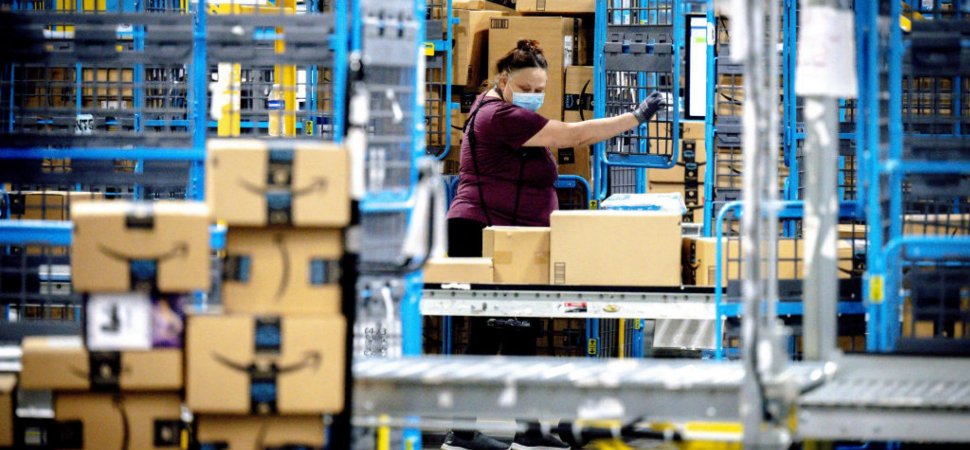Amazon Is Doing Something It’s Never Done Before and It’s Going to Make Holiday Shopping More Expensive This Year
Most people think of Amazon as the place you go to buy, well, basically everything, and–more importantly–have it delivered within a day or two. That’s true, but what most people don’t think about is that more than half of everything sold on Amazon.com isn’t actually sold by Amazon. They’re sold on behalf of third-party sellers. Of course, the majority of those sales are fulfilled by Amazon, using its network of warehouses and drivers to get orders to customers quickly.
For those sellers, the holiday shopping season just got a little more expensive. That’s because, according to CNBC, Amazon notified sellers last month that it would impose a surcharge of 35 cents per item for using its fulfillment service between October 15 and January 14.
To be clear, those sellers already pay Amazon for the privilege of storing their products in its warehouses and for handling those orders. This additional “surcharge” is on top of fees that some sellers can take up as much as half of what they charge customers.
Amazon, for its part, says it’s making the change due to the increased cost of, well, everything right now:
“Our selling partners are incredibly important to us, and this is not a decision we made lightly,” Amazon said in an email. “The entire industry sees increases in fulfillment and logistics costs during the holiday peak period due to the concentrated volume of shipments. We have previously absorbed these cost increases, but seasonal expenses are reaching new heights.”
I know that 35 cents doesn’t seem like a lot, but consider that it will hit sellers of less expensive items harder than those who sell higher-end products. If you sell something for $5.00 on Amazon, 35 cents is a lot harder to absorb than if your item is $100.
In both cases, however, that expense is most likely going to get passed along to consumers. At a time that many people are worried about the price of everything from gas to groceries, the idea that holiday shopping is about to get more expensive is not good news for anyone.
The reason Amazon is adding the fee is pretty obvious. Some analysts estimate the company could add as much as $800 million in revenue during the holiday quarter as a result. That might not seem like a lot of money for a company the size of Amazon, but consider that it’s basically free money. There are no new costs associated with those fees–it’s almost all profit since it offsets an expense the company was already paying.
The thing is, when everyone else is doing something, you could make a choice to use the fact that you aren’t as a competitive advantage. That’s the position Amazon has taken in the past. This year, however, it’s jumping in with the competition because it sees an easy way to generate some money.
It’s not like small merchants who sell through Amazon’s fulfillment network can just decide to go somewhere else. No, they’ll have to pay the fee, and in many cases that means they’ll either have to make less money, or they’ll have to pass along the fee to their customers.
Sure, I guess you could argue making as much money as possible is what Amazon is supposed to do. That’s the point of running a business, right? The thing is, there’s an important lesson here: free money always comes at a cost. If you add a fee just because you can, your customers notice. When things get more expensive just so you can take advantage of the fact your customers don’t have a choice, that costs you in ways you can’t always measure on a profit and loss statement.
It’s interesting that Amazon points to other shippers as part of its justification for adding a fee. It’s true that FedEx, UPS, and USPS have historically added a holiday surcharge. Still, as every mother has said at least once to a child that used the same excuse, just because everyone else is doing it, doesn’t mean you should too.
